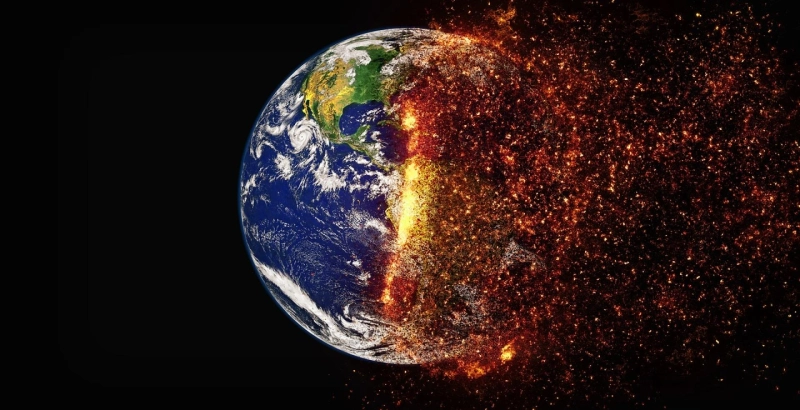[caption class="snax-figure" align="aligncenter" width="662"] [/caption]
[/caption]
Most people consider that climate change and global warming are similar terms, but that’s not right. Scientists prefer to use the term climate change to refer to the drastic effects of the planet’s weather and climate system. Climate change involves the rising of the normal temperature of the Earth, extreme weather events, shifting wildlife population and habitats, seas rising gradually, and some other impacts. The major cause of the drastic change in climate is due the human activities and continuity of adding greenhouse gases to the atmosphere.
In the world climate change forum 2020, researchers have documented some of the following impacts of climate change:
- The glaciers are melting worldwide, especially at the Earth’s poles. It includes ice covering West Antarctica, Greenland, and Arctic sea ice. The glaciers are melting and remains a few which was more than 150 in 1910.
- The ice that melts from glaciers contributes to raising the sea level surface. A few decades ago, the total rise was seen 0.13 inches (3.2 millimeters) per year, but now the rising rate is faster in recent years due to climate change.
- The continuous rising in temperature is badly impacting the wildlife, and their habitats are vanishing by the ice. Hence, the population of the species, such as Adelie penguin in Antarctica, got badly impacted by this and collapsed by 90% or more.
- Some other species of butterflies, foxes as well as alpine plants have moved further in the North toward cooler areas due to temperature change.
- Rainfalls and snowfall have been increased gradually every year across the globe. Due to the precipitation, some regions are experiencing more drought that ultimately has increased the chances of drought, wildfires, lost crops, and shortage of drinking water.
Climate Change Impact on Food:
Our food production solely relies on atmosphere and climate conditions. Albeit agrarian practices might be versatile, but changes like increased temperatures, water pressure, diseases, and extreme weather make difficulties for the ranchers and farmers who harvest grains for our food.
Impact on Health:
Human wellbeing is directly impacted by climate change, and the changing condition has relied upon the increment of heat stress, an expansion in waterborne diseases, poor air quality, and ailments communicated by bugs and rodents. Outrageous climate occasions can compound huge numbers of these heath threats.
Water:
Due to the gradual change in the precipitation and continuous rise in temperature, water resources are greatly impacted. Particularly in the western United States, drought has greatly affected the communities as less snow accumulates, which was used before to store water for later use. In the northeastern states and Midwest, the frequency of heavy rainfall has increased, which may lead to floods and water quality problems that will gradually become worse due to climate change.
The Environment:
Ecosystems are also greatly impacted by the drastic changes in climate. Habitats are vanishing, and animals are migrating toward the modified habitats, the timing of natural events such as flowering and egg-laying are shifting as well as different species are eliminating due to the unfavorable climate and altering of their homes.
The ocean absorbs about 30% of carbon dioxide that is released into the atmosphere from the burning of the fossil fuels that leads toward more acidic water. Hence, the rising of sea level is occurring due to the thermal expansion.



